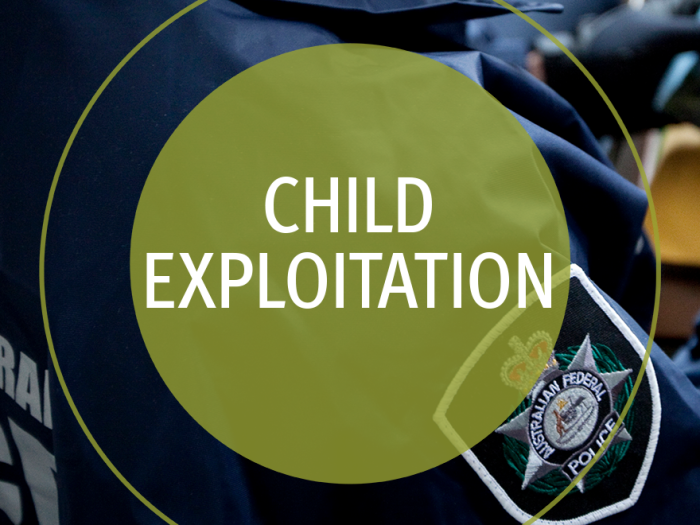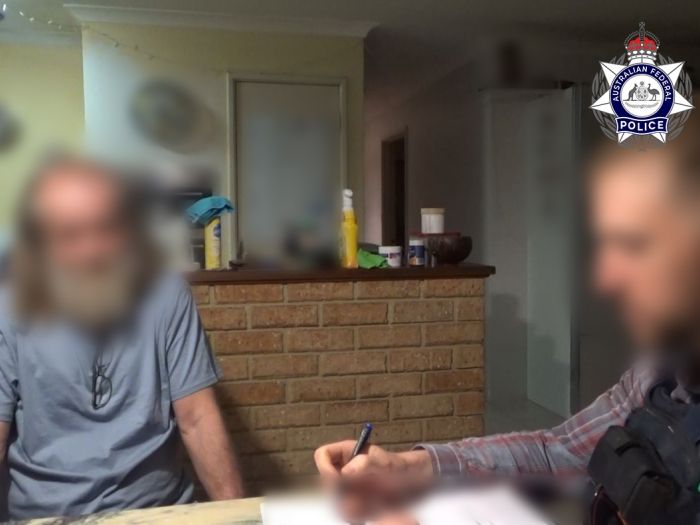AFP-led CACT restrains home of SA man charged with online child abuse offences
The AFP-led Criminal Assets Confiscation Taskforce (CACT) has obtained a restraining order in relation to the South Australian home of an alleged online child sex offender.
The man, 38, was initially charged with child abuse material offences in December 2023, after the South Australian Joint Anti Child Exploitation Team (SA JACET) alleged he was found to be in possession of child abuse images and videos.
On 13 December 2024, the alleged offender was charged with a further 52 offences, largely relating to the transmission and production of child abuse material on social media platforms.
The SA JACET’s investigation into the man included the forensic examination of electronic devices found at his home – including mobile phones, personal electronic devices, a desktop computer and SD cards – which contained thousands of alleged child abuse material videos, images and messages.
The CACT team in the AFP’s Central Command conducted a separate investigation into the alleged offender.
The CACT – which brings together the resources and expertise of the AFP, Australian Criminal Intelligence Commission (ACIC), Australian Taxation Office (ATO), Australian Transaction Reports and Analysis Centre (AUSTRAC), and Australian Border Force (ABF) – applied to the Supreme Court of South Australia today (20 December 2024) to have the alleged offender’s home restrained under the Proceeds of Crime Act 2002 (Cth).
This is the third time the CACT has used the Proceeds of Crime Act 2002 (Cth) to restrain the home of an alleged online child sex offender. The first home was restrained in South Australia in November 2020, while the second home was restrained in the Northern Territory earlier this year.
AFP National Manager Criminal Assets Confiscation Stefan Jerga said this restraint sent a clear message the AFP and its partners will not hesitate to use the significant powers available within the Proceeds of Crime Act 2002 (Cth) to target those exploiting children.
“Online child abuse is an abhorrent crime and this is another warning that not only do those involved in harming our children face imprisonment, they also risk losing their homes and other assets,” Mr Jerga said.
“The CACT will continue to partner with the Australian Centre to Counter Child Exploitation (ACCCE) and JACET teams across the country to use the full force of the law to prosecute, disrupt and deter those who target and exploit our children, whether in Australia or abroad.
“We will continue to be relentless in pursuing the assets and wealth of those who attempt to operate outside of the law.”
Other CACT cases relating to online child abuse offending:
- In 2020, a Belgium national residing in Sydney was the first to have assets restrained by the CACT as part of a child protection investigation. He had been selling online child abuse material from a website he was running. The CACT restrained the man’s assets, estimated to be worth $30,000, which included funds in two bank accounts, camera equipment, a drone and scuba diving gear. The matter has been finalised, with all property forfeited to the Commonwealth.
- In November 2020, the CACT restrained the Adelaide home of a man sentenced to more than 15 years’ imprisonment for online child abuse offences, including the live streaming of children being sexually abused overseas. A total of 50 per cent of the market value of the property was ultimately confiscated.
- In August 2023, the CACT successfully restrained assets owned by a Geelong man, 32, after he was charged by authorities for controlling, producing and possessing child abuse material and dealing with proceeds of crime. The assets included two vehicles, high-end televisions, audio-visual equipment, furniture and appliances. The CACT is currently seeking to confiscate the restrained assets and benefits derived from the alleged offending.
- In July 2024, the CACT successfully confiscated the home of a Northern Territory man, who was convicted of online child abuse material offences.
The CACT was launched in March 2011 and permanently established in 2012 as a proactive and innovative approach to trace, restrain and ultimately confiscate criminal assets.
The highly-skilled members of CACT are located Australia-wide and comprise police, financial investigators, forensic accountants, litigation lawyers and partner agency specialists.
The Commonwealth’s proceeds of crime laws provide extensive tools for restraining and forfeiting proceeds and instruments of crime, as well as financial penalty, and unexplained wealth orders. In December 2023, the CACT announced it had restrained $1.1 billion in criminal assets in just the past four years, delivering a significant blow to organised criminals.
The proceeds of confiscated assets are placed into the Commonwealth’s Confiscated Assets Account (CAA), which is managed by the Australian Financial Security Authority on behalf of the Commonwealth. These funds can then be distributed by the Attorney-General to benefit the community through crime prevention, law enforcement and other community related initiatives across Australia.
Examples of programs funded by the CAA include: the AFP-led ThinkUKnow online child safety education program, Neighbourhood Watch Australasia, the National DNA Program for Unidentified and Missing Persons, and the ACIC regional and remote wastewater testing pilot.





